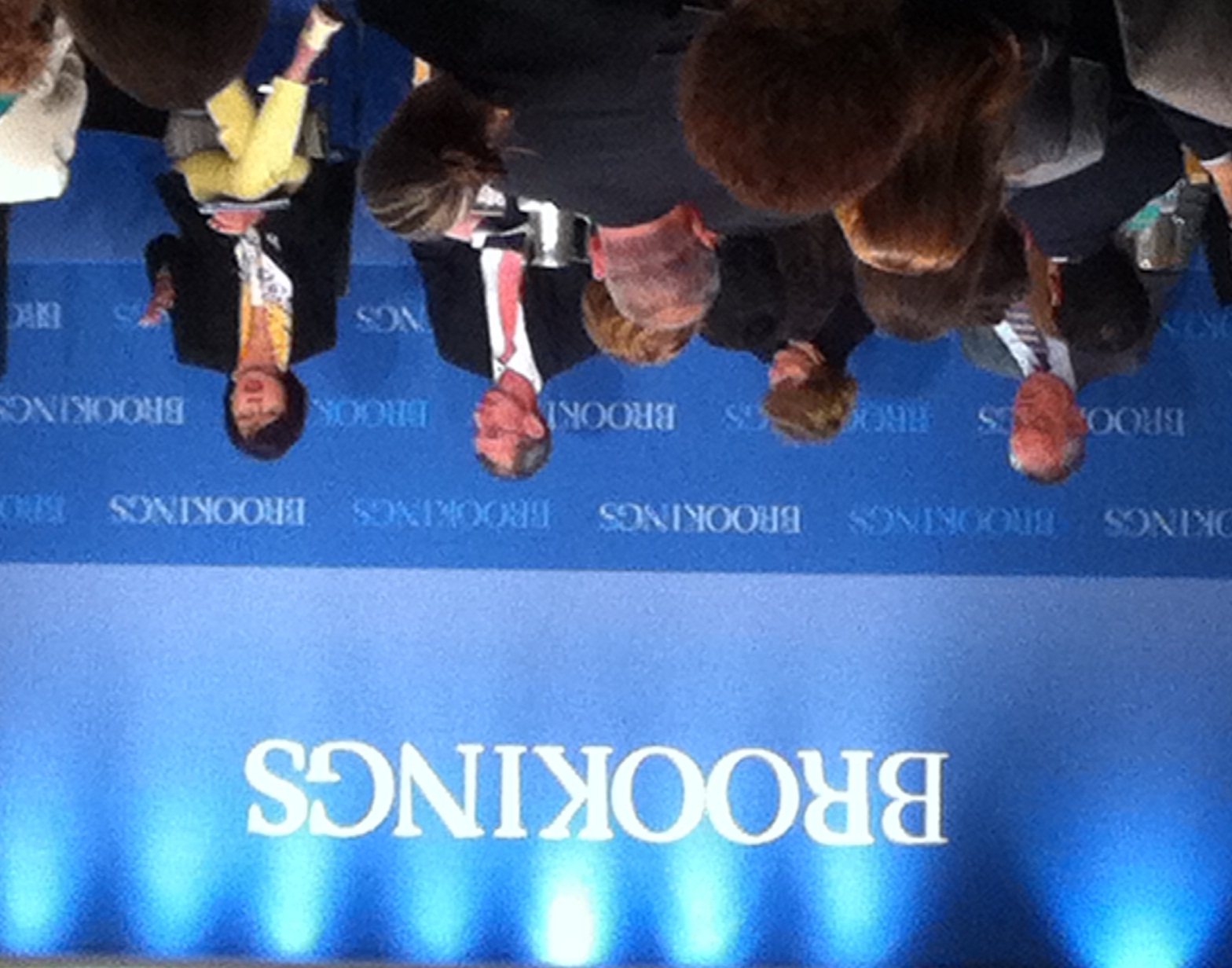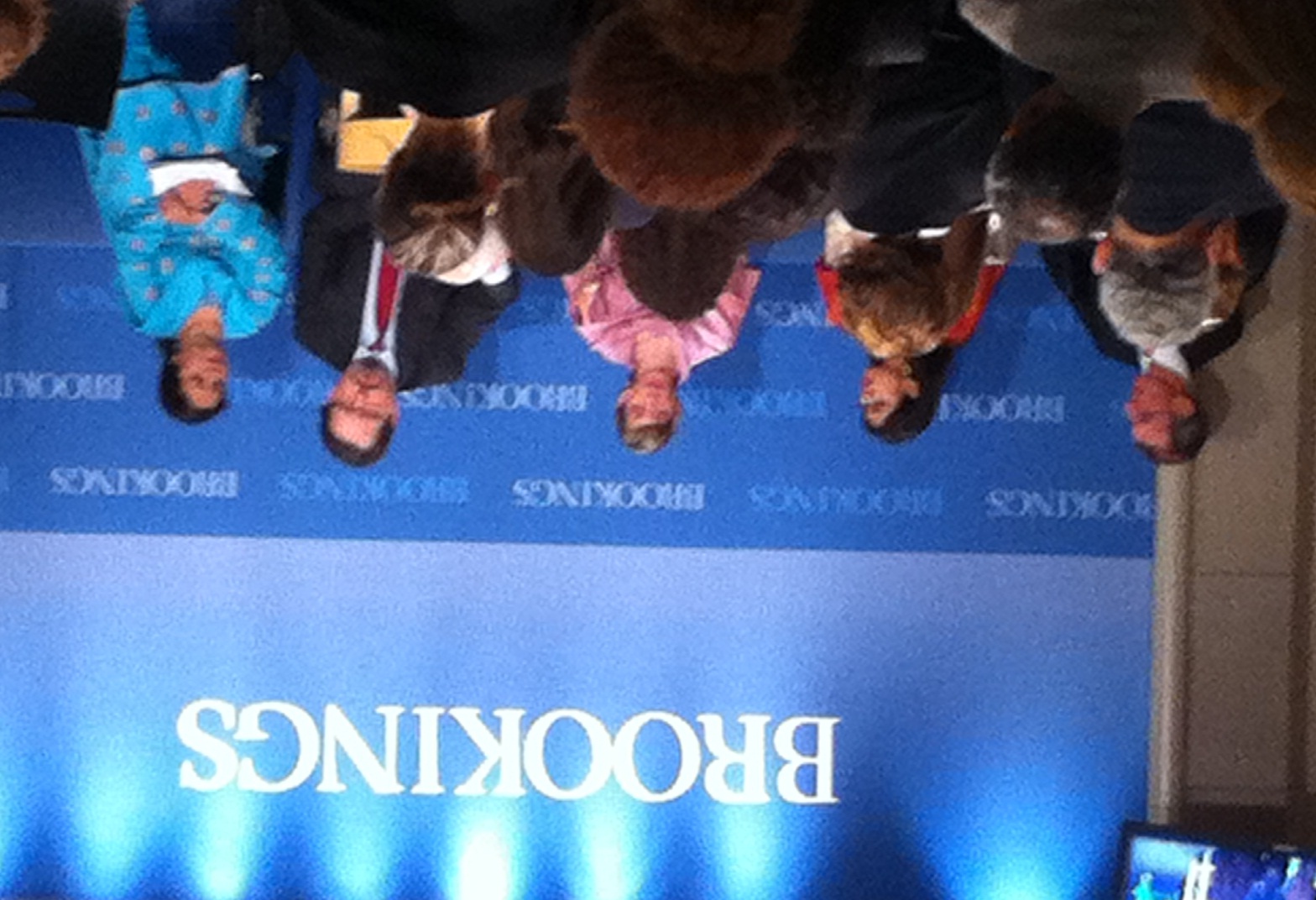Education in the Global Spotlight
The next two weeks will see a wealth of activities geared toward ramping up the global education agenda. From community initiatives to ministerial meetings, children, parents, advocates, experts, and political leaders are turning their attention to basic education.
With a meeting between the Youth Advocacy Group of the Global Education First Initiative and key education partners, yesterday marked the beginning of a global education summit co-hosted by the President of the World Bank Dr. Jim Kim, the United Nations Secretary-General Ban Ki-moon, and the United Nations Special Envoy for Global Education Gordon Brown in Washington, D.C.
 This morning, April 17, saw two critical discussions take place with heads of development institutions and civil society. The first put education financing at the forefront of the agenda (pictured at left, from left to right: Nigel Chapman, CEO, Plan International; Alice Albright, CEO, GPE; Kevin Watkins, Senior Fellow, CUE Brookings Institution; Elizabeth King, Director of Education, World Bank). With new figures from UNESCO placing the estimated global finance gap for basic education at $26 billion (up from the 2010 estimation of $16 billion!), the mobilization of resources for education — domestically, bilaterally, multilaterally, and from the private sector — is more important than ever if the EFA goals and education Millennium Development Goals are to be achieved by 2015.
This morning, April 17, saw two critical discussions take place with heads of development institutions and civil society. The first put education financing at the forefront of the agenda (pictured at left, from left to right: Nigel Chapman, CEO, Plan International; Alice Albright, CEO, GPE; Kevin Watkins, Senior Fellow, CUE Brookings Institution; Elizabeth King, Director of Education, World Bank). With new figures from UNESCO placing the estimated global finance gap for basic education at $26 billion (up from the 2010 estimation of $16 billion!), the mobilization of resources for education — domestically, bilaterally, multilaterally, and from the private sector — is more important than ever if the EFA goals and education Millennium Development Goals are to be achieved by 2015.

While great strides have been made since 2000 in expanding access to basic education globally, the quality of that education is largely suffering. The second session tackled the issue of not only quality but equity of learning outcomes (pictured at right, from left to right: Kevin Watkins, Senior Fellow, CUE Brookings Institution, Sumaya Saluja, Program Coordinator, YP Foundation; Rebecca Winthrop, Senior Fellow and Director, CUE Brookings Institution; Albert Motivans, Head of Education Indicators and Data Analysis, UNESCO Institute for Statistics; Baela Raza Jamil, Director of Programs, Center of Education and Consciousness). While national average scores on learning assessments are already low in many places, a starker picture emerges when those averages are disaggregated to look at the function of poverty, location (urban vs. rural), and gender.
The U.S. Chapter of the Global Campaign for Education (GCE-US) then facilitated a conversation between the Youth Advocacy Group for Global Education First and Washington D.C.-area students on their perspectives as to what is needed to accelerate progress in education.
Tomorrow, April 18th, on the eve of the 2013 Spring Meetings of the World Bank and the International Monetary Fund, the Jim Kim, Ban Ki-moon, and Gordon Brown will co-host the Learning for All Ministerial meetings whereby eight governments — Bangladesh, Democratic Republic of Congo, Ethiopia, Haiti, India, Nigeria, Yemen, and South Sudan — whose countries together represent more than 40 percent of the world’s out-of-school children will sit down to develop strategies to accelerate the universal provision of basic education before the close of 2015. The day will conclude at the World Bank with a screening of the film Girl Rising, showcasing the transformative power girls’ education has on individuals, families, and communities.
Activities continue on Friday, April 19th, with discussions on some of the greatest barriers to Education for All, including, child slavery, child marriage, and the shortage of trained teachers. Friday closes with a return to the question raised at the beginning of the week — education finance — to continue this critical conversation and recap new finance implications that will have developed throughout the week. RESULTS, in partnership with GCE-US, the Global Partnership for Education (GPE), Oxfam International, and Plan, has organized the session, titled “Financing Education as a Global Public Good: 1000 Days to 2015 and Beyond.” See the event invitation for details:
April 19–22 will also see GCE-US’s 2013 Student Advocacy Training as part of Global Action Week (April 20–26). As part of the training, participants will work with and learn from GCE-US’s coalition members about how to advocate for equal access to a quality education worldwide. In addition to an in-depth look at international education issues, policies, and actors, students will participate in skills training in grassroots and grasstops organizing, event planning, fundraising, media training, storytelling, and more.
To celebrate Global Action Week, GCE-US, RESULTS, and the Basic Education Coalition (BEC) in cooperation with Rep. Nita Lowey will host a reception on Tuesday evening, April 23, that will also feature a chapter of the film Girl Rising.
